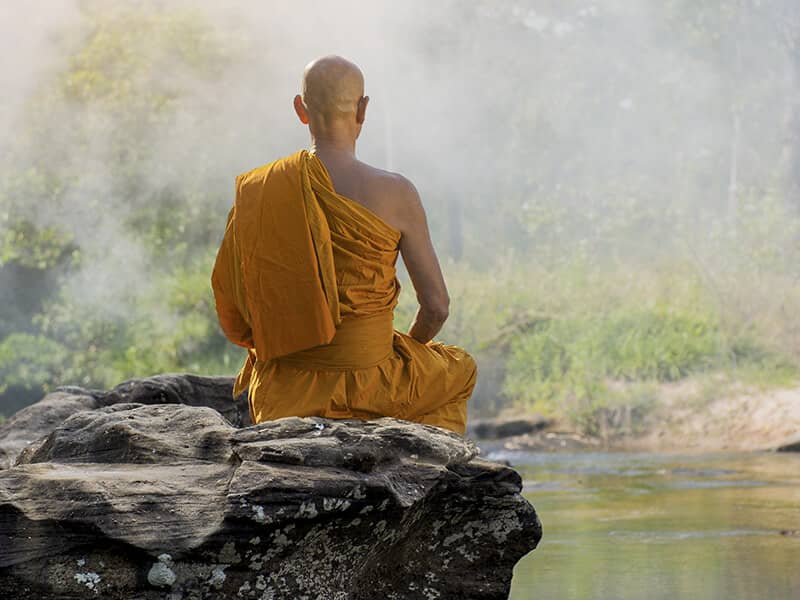A: My own lama, the late Venerable Kalu Rinpoche, used to say at his monastery in Darjeeling, West Bengal, that practicing two different religions was like trying to sew with a needle that has two points. In other words, there's no place for the thread that would join two pieces of a garment.
On the other hand, during his many teaching tours and travels in Europe and America, he would often, when asked, tell Westerners that they could not only practice Buddhism but also take refuge vows--thus formally entering the gate of dharma--without giving up their own faith. When his own Tibetan disciples, including some lamas and khenpos, questioned him on this, Rinpoche remained adamant on this point.
This kind of hybridization may be skillful means rather than what the old masters really believe. But personally, I speak and teach at plenty of interfaith gatherings and lead retreats at synagogues and churches, parochial schools, and learning centers here as well as in Israel. I know plenty of Christian Buddhists, Jewish Buddhists, and Buddhist Jewish Hindus, including spiritual teachers Bernie Glassman, Ram Dass, Stephen Levine, Mark Epstein, and Stephen Cope. In fact, this kind of spiritual blending is so common that there are many awkward and amusing titles for these folks: Bujus, Jubus, Hindjews, etc. Humor aside, the mixing of faiths hardly reflects a pattern of dabbling. In fact, there are some Christians whose dedication to Buddhism has resulted in their achieving the status of Zen master. They include Father Kennedy from the U.S., and Father Willitus Jaeger of Germany, who trained under the guidance of a Zen master in Japan during the decades he served as a Christian missionary there. Both still perform their priestly functions within their own church.
Brother David Steindl-Rast, author, Camaldolese monk, and long-time Zen meditator, as well as Jerry Brown, former governor of California and now mayor of Oakland, also combine their deep Christian faith with Buddhist practice, and have done so for decades.
Among my own tribe, my friend Sylvia Boorstein leads an annual Buddhist insight meditation retreat for rabbis, sponsored by the Jewish Cummings Foundation. The rabbis say they find Buddhist meditation a complement to, not a contradiction of, their spiritual quest.
I mention these examples in order to illustrate what exists today, as opposed to what might be appropriate on a theoretical basis.
Buddhism is less a religion than a philosophy, an ethical and psychological way of awakening. It is a way of life, a path of enlightened living. Buddhism has no real creed, dogma, or conversion ceremony. It is not about beliefs but about practice. In the Buddha's path of enlightened living, there is nothing to believe and everything to be discovered through its moral, compassionate, wise, and nonviolent practices and principles. To my mind, spiritual practice is perfect--so just do it!

